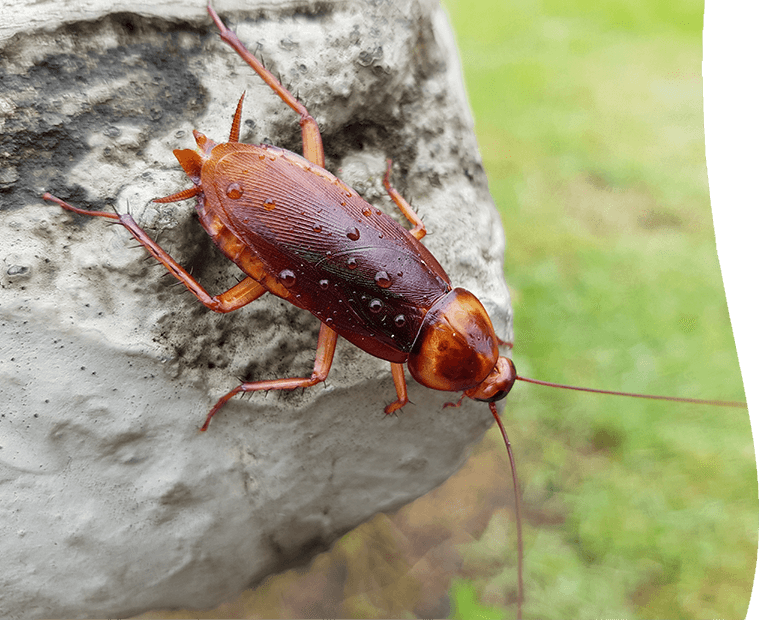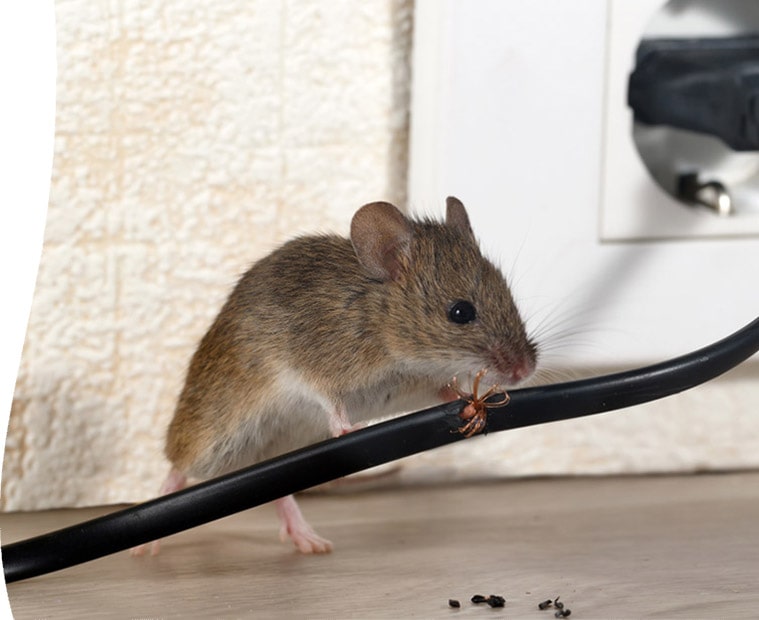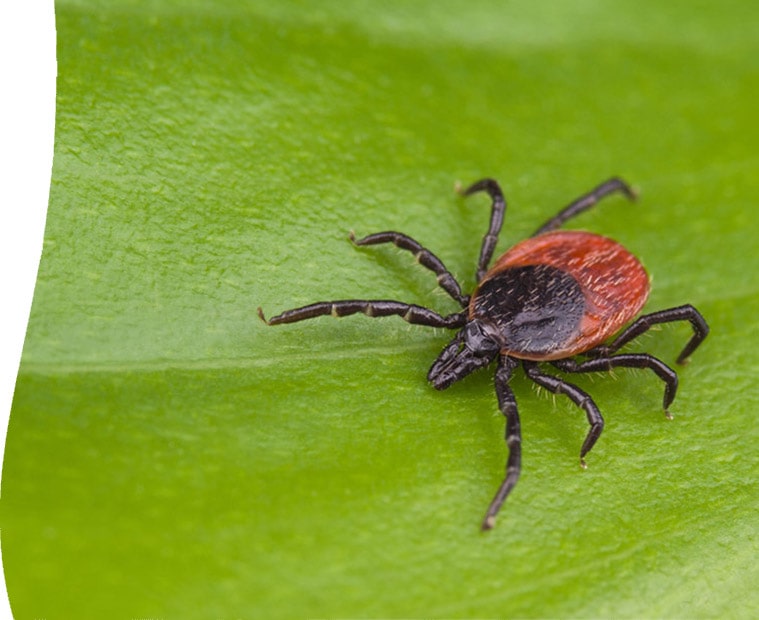
Cockroaches
Nobody likes having cockroaches scurry around their house. Not only are these insects unsightly, but they are also a health hazard. There are a few different types of cockroaches that are common to see, which include American, German and Oriental. While they differ in a few different ways, they all are a problem to have in your home.
Cockroaches are known for spreading bacteria, which in turn leads to illness. Because of this, you’ll want to ensure they don’t nest in your home.
Here are a few things you can do to stop cockroaches from moving into your home:
- Place weather-stripping around your doors and windows.
- Inspect the exterior of your house for cockroaches.
- Keep your basement dry.
- Clean and vacuum your home thoroughly.
- Inspect packages you receive before bringing them into your house.
Mosquitoes
Mosquitoes are awful. Not only do they bite and suck blood, but they also are able to fly. This makes them a particularly annoying pest to deal with. Beyond biting you and leaving itchy bumps, mosquitoes can also transmit viruses and diseases. Some of these illnesses are extremely serious.
In order to ensure you don’t have a bunch of mosquitoes in your home and on your property, consider the following tips:
- Fill in any holes in your yard.
- Remove standing water from your home.
- Cut your grass short.
- Get rid of any debris or stumps that are on your property.
- Turn any containers or buckets in your yard upside down.


Ants
As you may know, ants live in colonies. Because of this, when you see an ant or two out and about, you can be pretty sure that there are more around. There are a few different types of ants that are common. These include sugar, Argentine and fire ants. All of these ants can get into your food, cause damage to your property and even spread illness. On top of all of that, fire ants have a particularly nasty sting.
In order to avoid ants in your house, follow the tips below:
- Make sure any openings to your house are closed off.
- Use weather-stripping on doors and windows.
- Rinse out cans and containers before throwing them away.
- Remove overgrown vegetation and branches from your property.
spiders
Spiders are creepy, and they tend to hide away in the corners of your house. They then spin their webs and set up shop. While some types of spiders are harmless and aren’t aggressive, others can be extremely dangerous. The venom of some spiders can even land a loved one or you in the hospital.
In order to stop spiders from infesting your home, consider implementing these tips:
- Clear away spiderwebs when you see them.
- Remove leaf piles, rock piles and other debris from your yard.
- Replace or repair torn window and door screens.
- Keep your windows and doors closed.
- Make sure you don’t have open cracks in your exterior wall.


Bed Bugs
As the cliché goes, “don’t let the bed bugs bite.” You definitely don’t want bed bugs in your bed, or anywhere around your house. While people associate bed bugs with beds for obvious reasons, they can actually spread to other furniture in your house. These annoying pests then bite you, which causes you to itch.
In order to make sure bed bugs don’t make their home in your bed, consider these tips:
- Wash any clothing you purchase from the store as soon as you get home.
- Wash your clothes when you return from a trip.
- Wash your sheets regularly.
- Avoid purchasing a used bed and/or used furniture.
- Regularly clean and vacuum your home.
Rodents
Rodents like mice, roof rats and Norway rats may move into your house without you noticing. You may find signs that they are there, like food eaten that has been left out. You may even see them scurrying around! If this is the case, you’ll want to contact a company that specializes in pest control in Dallas ASAP.
Rodents are known for spreading diseases and viruses, which makes them very unsafe to have in your home. To avoid a rodent infestation to begin with, consider these tips:
- Take out your garbage often.
- Keep your house clean and vacuumed.
- Put food away when you are finished with it.
- Use a garbage disposal.


Wasps/Hornets
Wasps and hornets are aggressive and dangerous insects. If you notice you have a nest around, make sure you don’t go near it. Not only do their stings hurt, but they can also cause an allergic reaction. Because of this, you’ll want to make sure to contact a pest control specialist in Dallas as soon as you notice a nest of wasps or hornets on your property. They will be able to come out to your home and dispose of the nest in a safe way, then take steps to make sure the hornets or wasps don’t return.
Ticks
Ticks are parasites that attach to you and suck on your blood. These parasites also live off of animal blood, which means they may attach to your pets. The saliva of ticks can spread disease, so it’s important to ensure they don’t get on your pets, your family or you.
Here are a few things you can do to avoid ticks:
- Check your animals when they come indoors from spending time outside.
- Have your pets on a year-round tick control program.
- Keep your bushes and shrubs cut neatly.
- Cut the grass in your yard regularly.


Termites
Termites can do a lot of damage to the structure of your home. These small insects can multiply quickly into the thousands, and from there work away at the wood in your house. If you notice termites or you suspect them, make sure to call a professional exterminator in Dallas to get rid of them. Termites aren’t something you should try to handle on your own. They may be hidden well, and you don’t want to miss any.
Carpenter Ants
Carpenter ants are like termites in that they eat away at your home and do serious structural damage. This damage can end up being pretty costly to repair. Because of this, you’ll want to make sure carpenters don’t make their way into your home to begin with.
Here are a few things you can do to avoid a carpenter ant infestation:
- Remove tree stumps and other debris from your property.
- Paint, stain and varnish the wood in your home.
- Ensure your basement stays dry.
- Use weather-stripping on your doors and windows.
- Close off gaps to the roof line.

















